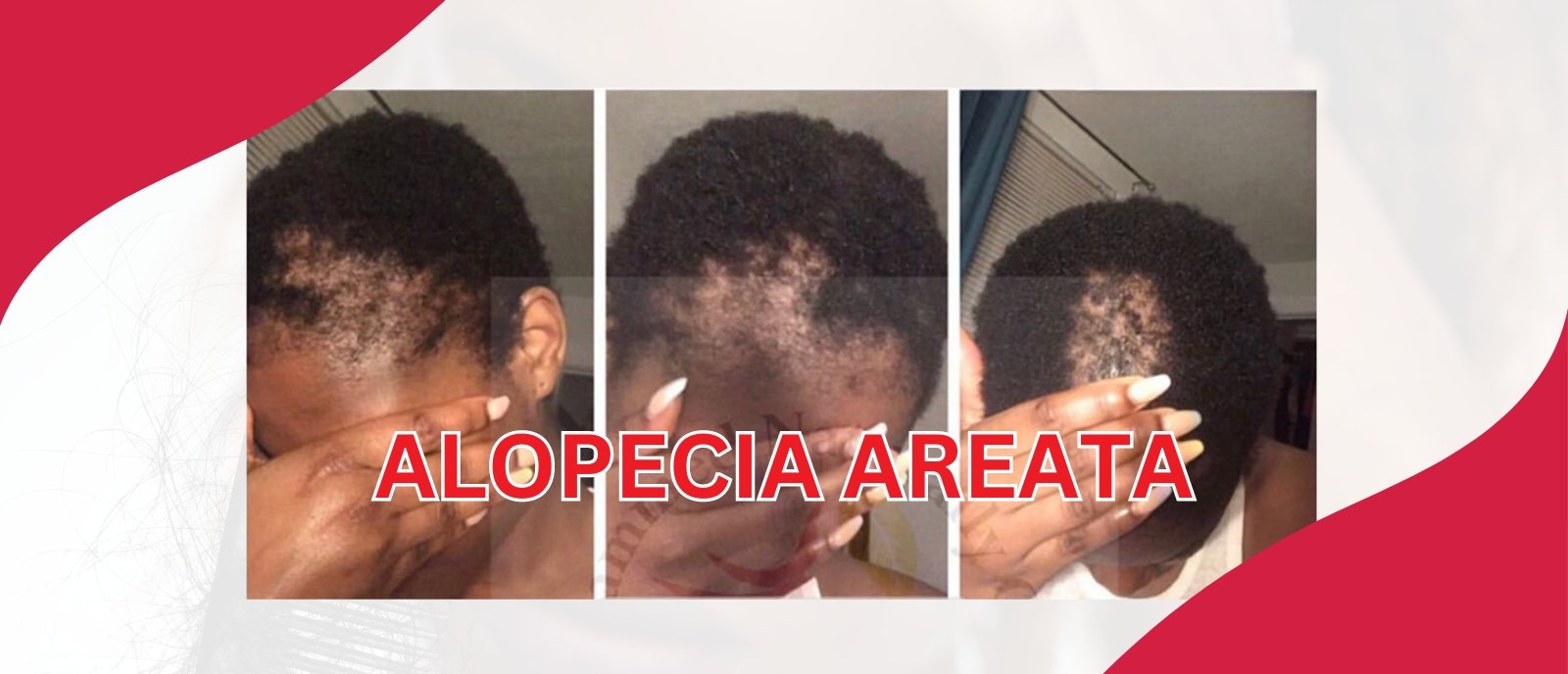
Alopecia Areata
What is Alopecia Areata?
It is a condition wherein your body's own immune system attacks the hair follicles (Autoimmune) that can cause hair falls out in small patches, Sudden hair loss that starts with one or more circular bald patches that may overlap. It can also lead to the complete loss of hair on the scalp (Alopecia Totalis) or even the worst loss of hair on the entire body (Alopecia Universalis).
Who can be affected by Alopecia Areata?
In the USA over 200000 people are diagnosed with this yearly. Alopecia Areata is not contagious. Regardless of age and gender, you can have this case but most people who can have this are often adults. It can rarely affect young children. It requires a medical diagnosis. While many people who have alopecia Areata are otherwise healthy, you do have a higher risk of getting some other diseases, such as thyroid disease. The earlier these diseases are found, the easier they are to control.
What causes and symptoms of Alopecia Areata?
It is caused by an abnormality in the immune system that damages hair follicles. Some several factors resulting are: Those include family history, People with an autoimmune disease like Rheumatoid arthritis and Type 1 diabetes mellitus. Alopecia Areata occurs when the immune system attacks hair follicles and may be brought on by severe stress. Other common symptoms: anxiety, itching, or small dents in nails.
Alopecia Areata can cause changes to your nails, too. If you notice a change to your nails, tell your dermatologist. If nails change worsen, you may start to feel pain. Some nail changes can interfere with everyday activities, such as typing or playing an instrument. Your dermatologist can tell you whether you need to treat your nails.
Treatment for Alopecia Areata?
There is no current cure for Alopecia Areata, although there are some forms of treatment that can be suggested by doctors to help hair re-grow more quickly. Other medications that can be prescribed that either promote hair growth or affect the immune system include Minoxidil, Anthralin, SADBE, and DPCP. People who are diagnosed with autoimmune conditions consider following an “anti-inflammatory” diet. Alopecia Areata treatment can be a bit costly that some people who have this condition can't afford to avail and extremely limited. There are few home remedy procedures that can be found on the internet but be sure to choose what's best for your hair.
Treatment consists of steroids and self-care:
Treatment may address any underlying conditions and includes topical scalp medications.
Self-care Stress management. Many people living with this disease say that before a cycle of hair loss, they often feel stressed out. Learning how to manage your stress with a technique that works for you, such as meditation or yoga, may help reduce cycles of hair loss.
Survey (see source below)
Eighty-six patients diagnosed as having Alopecia Areata. Intervention Eighty-six patients were randomized into 2 groups. The active group massaged essential oils (thyme, rosemary, lavender, and cedarwood) in a mixture of carrier oils (jojoba and grapeseed) into their scalp daily. The control group used only carrier oils for their massage, also daily.
If you take care of your mind soul and body everything starts flourishing the right way (Jummie Ogunyemi)
Using GlammedNaturallyOil oil daily will promote hair growth however if you’ve been diagnosed with Alopecia Areata and no result? We recommend speaking with your dermatologist for a proper diagnosis.
Source:
https://www.medicinenet.com
https://www.medicalnewstoday.com
https://jamanetwork.com/journals/jamadermatology/fullarticle/189618
Listen to "Let's Talk Traction Alopecia" from GlammedwithGrace on Anchor:
https://anchor.fm/jummie-ogunyemi/episodes/Lets-talk-traction-alopecia-e9gkrc/Lets-Talk-Traction-Alopecia-a15jc7c



اترك تعليقًا
This site is protected by hCaptcha and the hCaptcha Privacy Policy and Terms of Service apply.